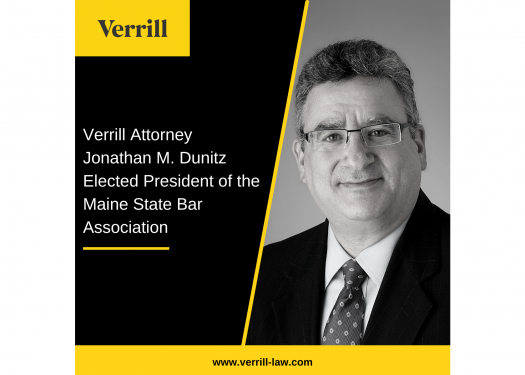Maine PUC Clarifies Ability of Level 2 Projects to “Leapfrog” Level 4 Projects in Interconnection Queue
After months of uncertainty over the issue of whether Level 2 renewable energy projects can “leapfrog” Level 4 projects in the queue, the Maine PUC clarified one of the ambiguities.
Specifically, in response to a petition we filed over the summer on behalf of a renewable energy developer, the Maine PUC issued an order at the end of October clarifying that developers may pay 100% of their known interconnection costs prior to completion of cluster studies that determine their transmission costs and be considered “aggregated generation” under Chapter 324. This is an important development that should reduce the frequency of Level 2 projects “leapfrogging” previously queued Level 4 projects that are stuck in cluster studies.
This issue arose in part due to a waiver granted by the PUC to CMP in September 2020 regarding Sections 12(S) and 12(T) of Chapter 324 of the Commission’s rules. This waiver allowed CMP to delay issuing construction schedules to customers in the interconnection queue until after the completion of the ISO-NE I.3.9 process. Pursuant to this waiver, T&D utilities adopted a policy of not invoicing Level 4 projects for payments of the estimated costs of interconnection upgrades until after the I.3.9 determination and cost allocations from ISO-NE cluster studies were complete.
This waiver had little adverse impact on a Level 4 Project until January 2022 when the MPUC amended Chapter 324 and adopted a definition of Aggregated Generation that excluded projects that had not paid 100% of estimated interconnection costs. Specifically, only the following are considered Aggregated Generation under the new definition: the project proposed by the applicant, in-service projects, and “all ICGFs that have paid the T&D Utility for 100% of interconnection-related costs attributable to it, including costs for studies, distribution facilities, systems upgrades, metering, and other items [for] which the ICGF has cost responsibility.” Previously, the utilities had treated all queued generation as aggregated generation. As a result of this new definition, Level 4 projects that have not paid 100% of their interconnection costs were no longer considered aggregated generation.
The combination of the definition of Aggregated Generation and the waiver that permitted delayed invoicing caused havoc in the queue. Level 2 projects were able to leapfrog Level 4 projects because the Level 4 projects were not considered when the utility applied the screening criteria to determine whether there was adequate capacity in the system to accommodate the proposed Level 2 project. When Level 4 projects asked to be invoiced so that they would be treated as aggregated generation, the T&D utilities pointed to the waiver and indicated that the invoices could not be issued until the cluster studies were completed and I.3.9 approval obtained. Each time a Level 2 project leapfroggs the queue, it forces a sequential restudy of all Level 4 projects in the queue. This results in significant delays to accommodate the required restudies, potential increases in interconnection costs resulting from such restudies, and undermines the commercial viability of projects that may otherwise have been shovel ready.
Verrill has filed several petitions seeking relief from the adverse consequences of the new definition of Aggregated Generation and the impact of Level 2 projects leapfrogging previously queued Level 4 projects. The MPUC issued the attached Order that provides partial relief and that allows projects to pay 100% of known interconnection costs prior completion of cluster studies and I.3.9 approval. The Commission points out that by allowing projects to pay 100% of their known interconnection costs, the utility will be able to consider the generation from these projects when screening future Level 2 projects. Although it does not solve the problem entirely, it provides partial relief from the draconian impact of the definition of Aggregated Generation.
For further information please contact Juliet Browne or Jonathan M. Dunitz.












